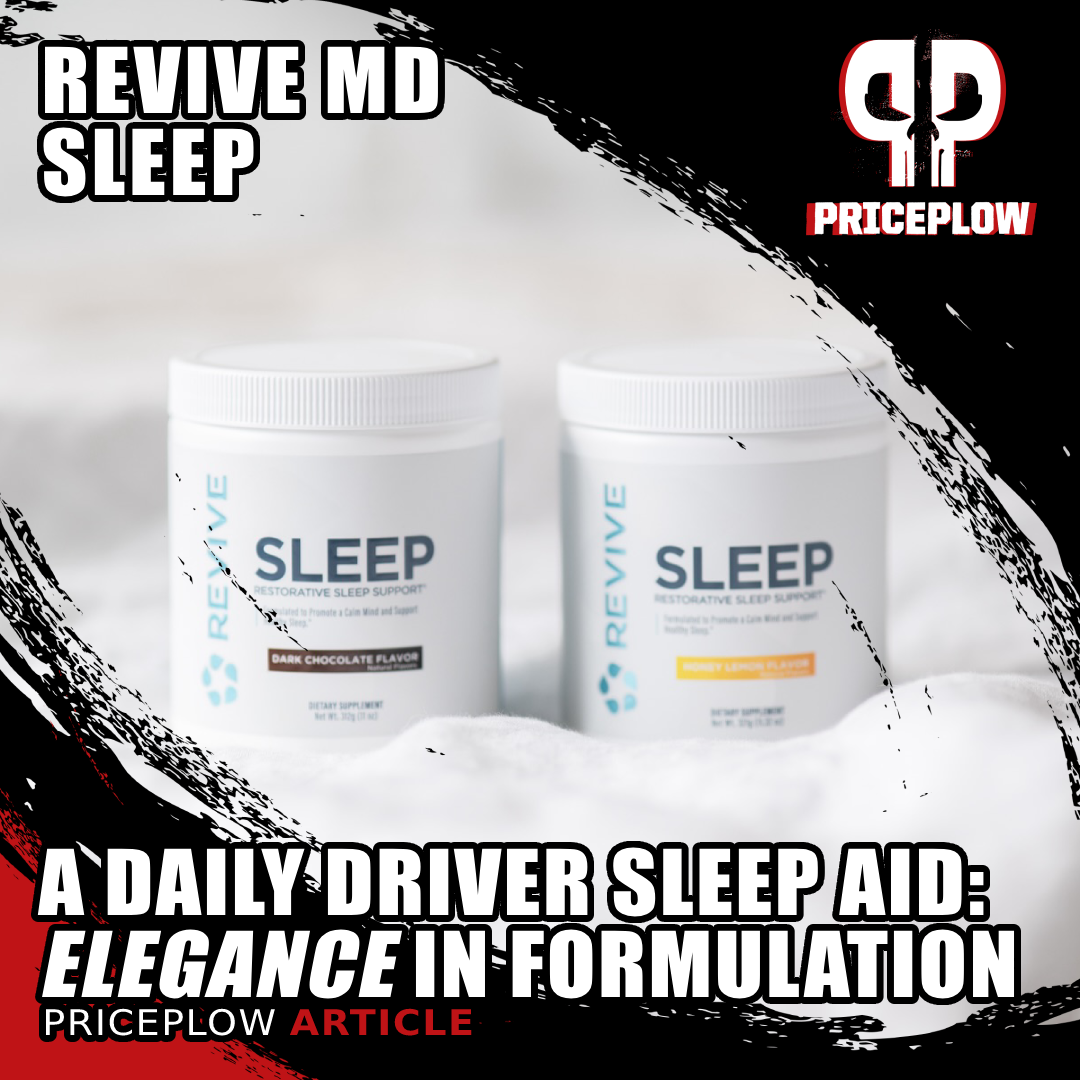
Revive MD Sleep is a masterclass in elegant formulation, proving that a focused, economical approach to ingredients delivers impressive results. By avoiding melatonin and focusing on non-hormonal, GABAergic ingredients, it offers a natural, effective sleep aid that enhances relaxation and supports better sleep.
Revive MD is one of the few supplement brands founded by a licensed medical doctor. Co-founded by Dr. Domenic Iacovone and elite bodybuilding coach Matt Jansen, Revive MD lives up to its name by delivering research-backed formulas that focus not just on specific aspects of athletic performance or a massive pump, but on total body wellness. The brand's stellar reputation reflects the deep expertise of its founders and their dedication to formulating products with an emphasis on improving health outcomes.
Over the years, their uniquely rigorous approach and innovative, out-of-the-box solutions have repeatedly resolved long-standing issues in the health and wellness supplement space. This continued when they brought Dom Kuza in as their head formulator.
We talked with Dom Kuza in Episode #144 of the PricePlow Podcast, and that's where he leaked his forthcoming sleep aid, Revive MD Sleep:
Revive MD Sleep – All Sleep, No BS
Looking at the Supplement Facts label for Revive MD's sleep, the best word to describe it is elegance. It's a formulator's masterclass in how a focused, economical approach to ingredient selection can often deliver the most impressive results.
By carefully choosing only the most cost-effective, scientifically-backed ingredients, Revive MD has created a sleep aid that prioritizes efficacy without overcomplicating the formula. This is a streamlined product that effectively enhances sleep quality, reduces stress, and supports cognitive function, without breaking your bank or requiring you to choke down massive amounts of powder.
Let's get into how it works, but first, check PricePlow's coupon-powered deals and sign up for our Revive MD news alerts to get notified when Dom and the team have new launches:
Revive MD Sleep – Deals and Price Drop Alerts
Get Price Alerts
No spam, no scams.
Disclosure: PricePlow relies on pricing from stores with which we have a business relationship. We work hard to keep pricing current, but you may find a better offer.
Posts are sponsored in part by the retailers and/or brands listed on this page.
This area is reserved for Team PricePlow's upcoming videos.
Subscribe to our channel and sign up for notifications so you catch it when it goes live!
Revive MD Sleep Ingredients
In a single 1 scoop (10.7 gram) serving of Revive MD Sleep, you get the following:
-
L-Glycine – 3,000 mg
Glycine is a conditionally essential amino acid that has GABAergic effects, meaning it acts like the neurotransmitter gamma-aminobutyric acid (GABA) in the central nervous system. Since GABA is an inhibitory neurotransmitter, and has a calming effect on neurons,[1] GABAergic compounds like glycine tend to have noticeable anti-anxiety effects. It should also synergize well with magnesium, another GABAergic ingredient in this formula.
Studies consistently show that when it comes to improving sleep, the clinical dose of glycine is 3 grams[2-4] – so we're glad to see that dose used in Revive MD's Sleep supplement.
There are a few great studies demonstrating glycine's ability to improve sleep. In one of them, a randomized controlled trial published in 2006, subjects who took a glycine supplement before bed experienced higher quality sleep and more energy upon waking, compared to the placebo group.[2]
Another study, a randomized, single-blind crossover study published in 2007, had 11 volunteers take either 3 grams of glycine or a placebo before bed, and then complete a series of sleep assessments. These included the Pittsburgh Sleep Quality Index, the St. Mary's Hospital Sleep Questionnaire, and the Stanford Sleepiness Scale, which are all well-known and empirically validated metrics for measuring sleep quality. These inventories showed quite clearly that the subjects experienced better sleep satisfaction when taking glycine, compared to the placebo. They also fell asleep more quickly, and had less trouble getting to sleep.[3]
This study took it a step further, and used actual polysomnography data to demonstrate that the participants who took glycine experienced longer deep sleep duration, and woke up significantly fewer times during the night.[3] Crucially, they also did better the next day – they reported higher wakefulness and improved cognitive performance, as measured by memory test scores in the middle of the day.[3]
In 2012, a followup study was conducted using the same design – this study found that the cognitive benefits of glycine actually persisted for several days after the subjects had taken it.[4]
The benefits of glycine go beyond sleep, too – glycine makes up about 12% of the body's total amino acid store,[5] and is crucial for protein synthesis, especially when it comes to your body's synthesis of elastin and connective tissue.[5]
-
Inositol – 2,000 mg
Inositol is a special kind of carbohydrate that's known to help support healthy neurotransmitter function, particularly serotonin and dopamine,[6] which are both crucial for maintaining mood and promoting relaxation. Because of this, it has been studied for its effects on mood disorders, particularly anxiety and depression,[7,8] which can often disrupt sleep patterns. Some studies indicate that supplementing with inositol may reduce symptoms of anxiety, which could improve sleep quality by reducing sleep onset latency (the time it takes to fall asleep) and increasing overall sleep duration.[9]
Myo-inositol may influence sleep by affecting circadian rhythms. It has been proposed that myo-inositol plays a role in the regulation of intracellular signaling mechanisms that affect the body's internal clock, particularly in neurons responsible for the circadian rhythm.[10] This may help maintain a consistent sleep-wake cycle, contributing to long-term improvements in sleep quality.
Inositol also participates in the phosphatidylinositol signaling pathway, which influences GABA (gamma-aminobutyric acid) receptor function.[11] This is a huge deal because, again, GABA is a key inhibitory neurotransmitter that promotes relaxation and sleep.[12] In particular, upregulating GABA can improve sleep onset and quality,[13] as it calms the nervous system. The existence of this mechanism suggests that inositol could help people with sleep difficulties linked to stress or hyperarousal.
-
L-Theanine – 200 mg
The amino acid theanine is sourced from the leaves of true tea (i.e. Camellia sinensis) – the plant that gives us the caffeinated white, green, oolong, and black teas that are beloved and consumed the world over.
Interestingly, theanine seems to act as a kind of natural foil to caffeine – by counteracting caffeine's negative effects, it helps tea drinkers (and theanine supplementers) enjoy the upside of caffeine, with far less of the downside. Have you ever noticed that, even though it's caffeinated, a nice hot cup of tea can have a net relaxing effect? Theanine seems to be the basic reason why.
In the Central Nervous System, theanine acts like a GABAergic neurotransmitter – note, GABA is is definitely something of a theme in this Revive MD Sleep formula – and thus has calming, anti-anxiety effects[14-17] thanks to its inhibitory effect on neurons.
L-theanine is well-known for its ability to promote relaxation without any sedative effects or risk of chemical dependency, making it a perfect addition to a sleep aid designed for everyday use. Research shows that theanine administration increases the activity of alpha brain waves, which are associated with a state of relaxed wakefulness, of the type you might experience during transcendental meditation or just a moment of quiet reflection. By cranking up your brain's alpha waves, theanine helps calm your mind while simultaneously focusing it.[18]
The use of ingredients like theanine, which relax without sedating, aligns with Revive MD's philosophy of helping the body naturally achieve a restful state.
Shortens sleep onset and improves sleep quality
This 200 milligram dose of theanine is the standard, and the effectiveness of this dose for improving sleep quality has been repeatedly verified by the peer-reviewed research literature.[19] Again, this is largely because of theanine's GABAergic properties.[16,19]
One of these studies found that 200 milligrams of theanine, taken daily for 4 weeks, improved PSQI scores – note, this is one of the inventories we discussed in the glycine section – by about 2 points.[19] Since the PSQI is a 21-point scale, a statistically significant improvement of 2 points is a pretty big deal.
That study, which was carried out in stressed subjects, found that theanine, in addition to improving sleep quality, also improved verbal fluency and cognitive performance – no doubt thanks, at least in part, to the indirect impact that better sleep has on brain health.[19]
Crucially, theanine has been shown to shorten sleep onset – meaning you'll fall asleep faster. This is one of the most important factors in overall sleep quality and satisfaction.[19,20]
Theanine's impact on sleep quality can probably be attributed partly to the fact that it decreases the production of cortisol, your body's primary stress hormone.[21] Since elevated cortisol levels can massively interfere with sleep onset and quality, keeping them under control with supplements like theanine is a key strategy for restful sleep in our fast-paced modern world.
Theanine can improve body composition
Some evidence suggests that theanine may be one of the important anti-obesity factors in tea,[22] as it works together with caffeine and the catechin antioxidants to downregulate certain blood biomarkers that are linked to body fat gain.
Theanine has been shown to convert the metabolically inactive white adipose tissue (WAT) to brown adipose tissue (BAT),[23] which has the potential to burn calories as heat. This is a hugely important fat loss mechanism – in PricePlow's experience, anything that spurs the conversion of WAT to BAT is probably a great fat loss supplement.
-
Magnesium (as magnesium bisglycinate chelate, magnesium taurate) – 400 mg
Raw Sleep has melatonin inside, so Revive MD Sleep will provide a melatonin-free alternative
Magnesium is an essential electrolyte mineral involved in over 600 different metabolic processes, including energy production and protein synthesis.[24] Research shows that even a slight magnesium deficiency can lead to serious health problems, which really underscores how crucial it is to consume enough of this vital nutrient.
We're going to go a little beyond magnesium's impact on sleep here, and treat you to a comprehensive discussion of its dizzying array of health benefits – mostly because, despite its incredible benefits, magnesium is rarely if ever dosed appropriately in multi-ingredient supplements. We think it's very cool that Revive MD went with the full 400 milligrams here, and it really seals the deal on Revive MD Sleep being one of the best supplement investments you can make in your long-term health.
Sleep and Cortisol Regulation
In addition to improving sleep quality,[25,26] magnesium has been shown to reduce cortisol, the body's primary stress hormone. Chronically elevated cortisol levels are common in today's fast-paced world, and this can definitely interfere with sleep. That makes supplemental magnesium an indispensable tool for those who might struggle to unwind at the end of a long day.[26]
One interesting study revealed that adequate magnesium intake is linked to an earlier sleep onset, allowing individuals to fall asleep more easily.[27]
Cognitive and Neurological Health
Magnesium plays a crucial role in neurotransmitter production,[28] particularly that of – can you guess? – gamma aminobutyric acid (GABA), the relaxing, anxiolytic neurotransmitter that has come up in every section of this article. Since magnesium supports GABA signaling[29], it can improve sleep quality—a benefit for those experiencing poor sleep due to stress.
The importance of magnesium for sleep cannot be understated. A 2015 study found that even mild magnesium deficiencies in adults under 65 increased the risk of depression by 22%.[30] Balancing magnesium with calcium is crucial for optimal health, as magnesium supports GABA signaling while calcium facilitates glutamate, an excitatory neurotransmitter.
Metabolic Health Benefits
As we said, magnesium's benefits extend far beyond sleep – it also offers significant metabolic support. Since magnesium is involved in so many critical cellular processes, correcting a deficiency can lead to widespread health improvements.[31-33]
These benefits include:
- Lower blood pressure[34-37]
- Improved glycemic control and lower HbA1c[34,38,39]
- Enhanced insulin sensitivity[34,38-40]
- Proper insulin signaling[34,38-40]
- Reduced risk of type 2 diabetes[41-43]
The thing is, all of the mechanisms listed here can also impact sleep quality! For example, hypertension and insulin resistance have been shown to significantly impact sleep for the worse.[44,45]
Many people report immediate muscle relaxation after taking magnesium supplements. This relief occurs because magnesium helps restore proper muscle function and alleviates physical tension.[46,47]
A meta-analysis and systematic review also confirm magnesium's benefits for reducing stress and anxiety.[48] Untreated magnesium deficiency can worsen these conditions, leading to fatigue over time.[28,49,50]
Athletic Performance and Muscle Health
Athletes can benefit significantly from magnesium, especially when it comes to recovery and performance. While the benefits are often indirect, magnesium contributes to:
- Increased bone mineral density[51]
- Faster lactic acid clearance[52]
- Improved lean muscle mass and power[29]
- Reduced exercise-induced muscle stress[53,54]
Taking magnesium before bed can help support recovery after intense workouts, ensuring that muscles get the nutrients they need to recover and rebuild.
Sweat and Magnesium
For physically active people who sweat heavily – a description that applies to many if not most of those who make up the PricePlow Blog audience – magnesium loss through perspiration should be considered as a potentially serious concern.[55] So whether you're an athlete or a weekend warrior, if you're working hard in the gym or on the pitch, the generous dose of magnesium in Revive MD Sleep will go a long way towards keeping you sleeping well.
Other Benefits of Magnesium
Magnesium offers numerous other health benefits backed by clinical research, including:
- Relief from PMS symptoms[46,47,49,52]
- Lower C-reactive protein (CRP) levels[43]
- Reduced interleukin 6 (IL-6) levels[33]
- Decreased inflammation[29,43]
- Migraine relief and reduced migraine frequency[40,41]
- Improved overall migraine symptoms[42]
Optimizing magnesium intake is crucial for achieving peak health. The extensive benefits of magnesium have been well-documented, so make sure you're getting enough of this essential mineral.[33,39]
Why magnesium glycinate and magnesium taurate?
Chelated forms of magnesium, like magnesium glycinate and magnesium taurate (both used in Revive MD Sleep), are widely recognized for their superior absorption and bioavailability. Compared to cheaper and more ubiquitous alternatives like magnesium oxide, which is far less bioavailable, chelated magnesium forms are taken up by the body very efficiently, and with minimal risk of gastrointestinal upset.
Flavors Available
Conclusion: A Simple and Elegant Approach to Sleep
We hope that Revive MD's approach to supplement formulation, as exemplified by their Sleep product, will set a couple new industry trends.
First, in a product category that seems crowded with exotic, unproven ingredients – perhaps second only to testosterone boosters in this regard – Revive MD opts for a tried-and-true, streamlined selection of cost-effective, research-backed compounds that deliver real results: clinical doses of glycine, inositol, L-theanine, and magnesium, all chosen for their efficacy and affordability.
One of the most notable aspects of Revive MD's Sleep formula is its exclusion of melatonin, a popular sleep aid found in many supplements. This is discussed with Dom Kuza in Episode #144 of the PricePlow Podcast, where he reminds us that their sister company, Raw Nutrition, already has melatonin in Raw Sleep, so now they have two options.
For some, melatonin can cause unwanted side effects, including grogginess upon waking and a "hangover" effect that lingers the next day. This makes it less suitable for those seeking a reliable, consistent sleep aid for daily use. Now you don't have to choose - you can either add it yourself, or try Raw Sleep.
A daily driver sleep aid
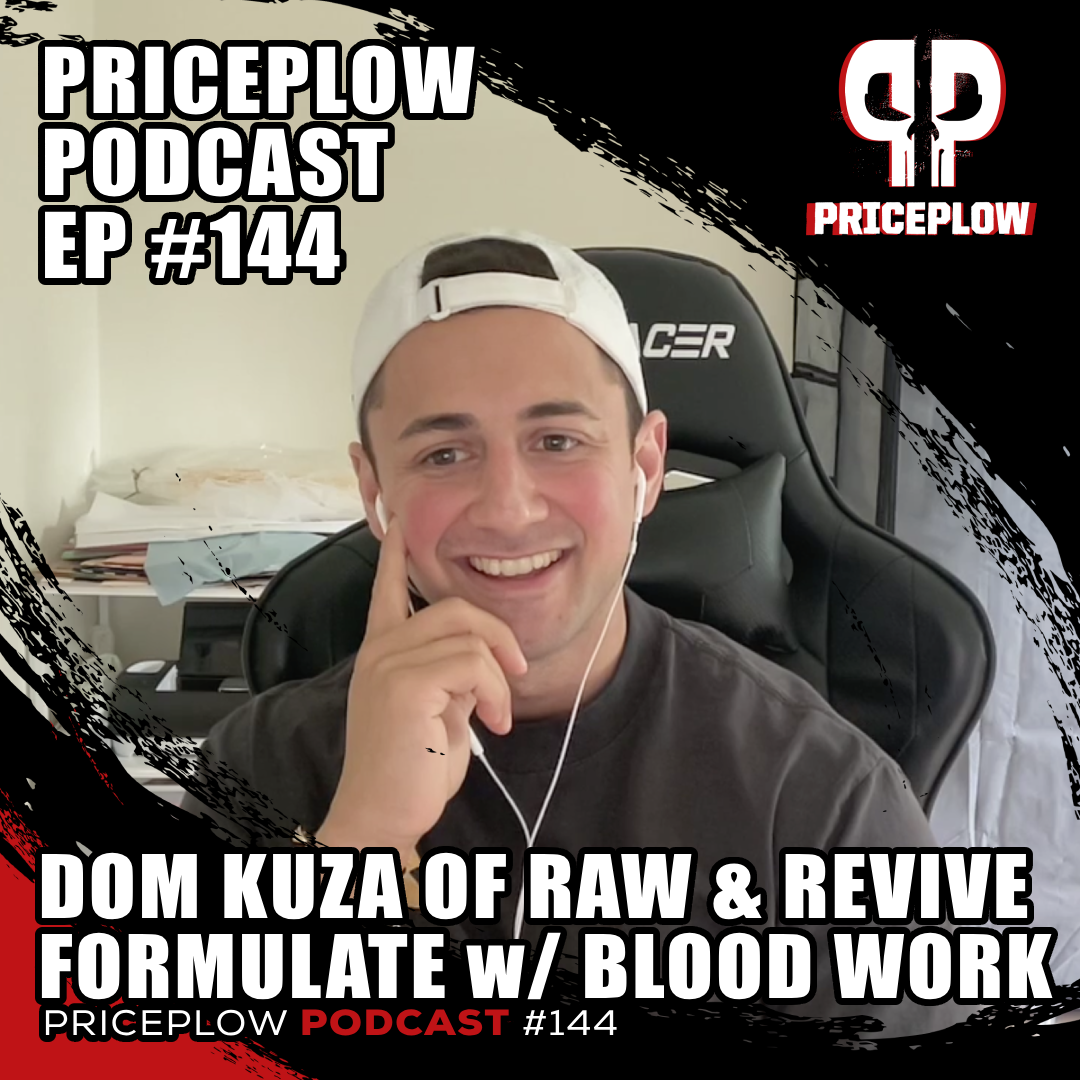
Dom Kuza, formulator at Raw Nutrition and Revive MD, joins the PricePlow Podcast for Episode #144 to tease his new Revive Sleep supplement and how he formulates with blood work!
By choosing to omit melatonin from this formula, Revive MD avoids those drawbacks, making their sleep supplement more suitable as a daily driver sleep aid, and for a large and growing segment of consumers who are just saying no to melatonin. Revive MD's decision to focus on non-hormonal, GABAergic ingredients allows for a more natural, self-regulated approach to improving sleep – These ingredients support relaxation, stress reduction, and improved sleep quality without the risk of disrupting the body's hormone balance.
With Revive MD leading the charge, we may see more brands embracing the "less is more" philosophy, delivering cleaner, more efficient formulations that truly benefit consumers.
Revive MD Sleep – Deals and Price Drop Alerts
Get Price Alerts
No spam, no scams.
Disclosure: PricePlow relies on pricing from stores with which we have a business relationship. We work hard to keep pricing current, but you may find a better offer.
Posts are sponsored in part by the retailers and/or brands listed on this page.
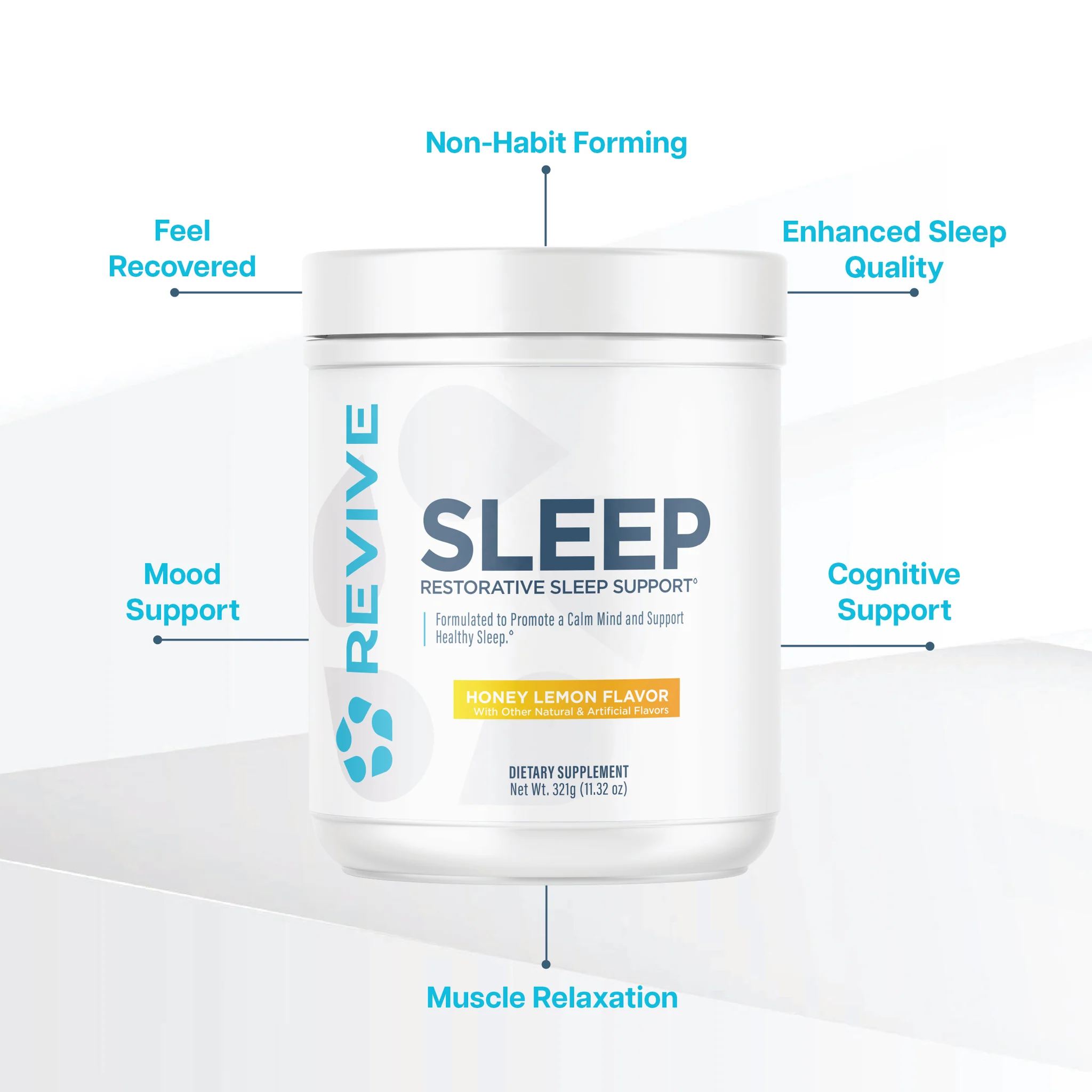
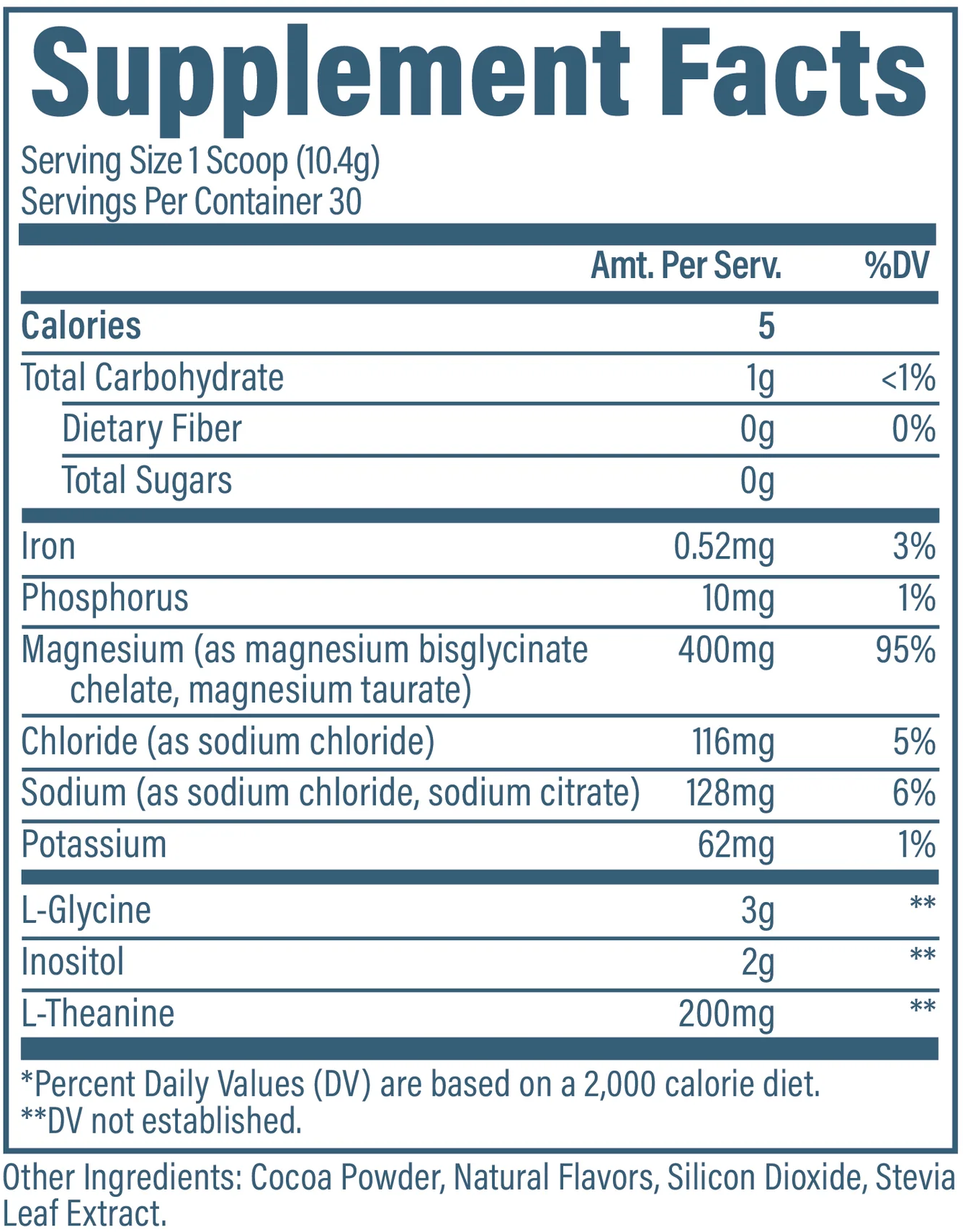
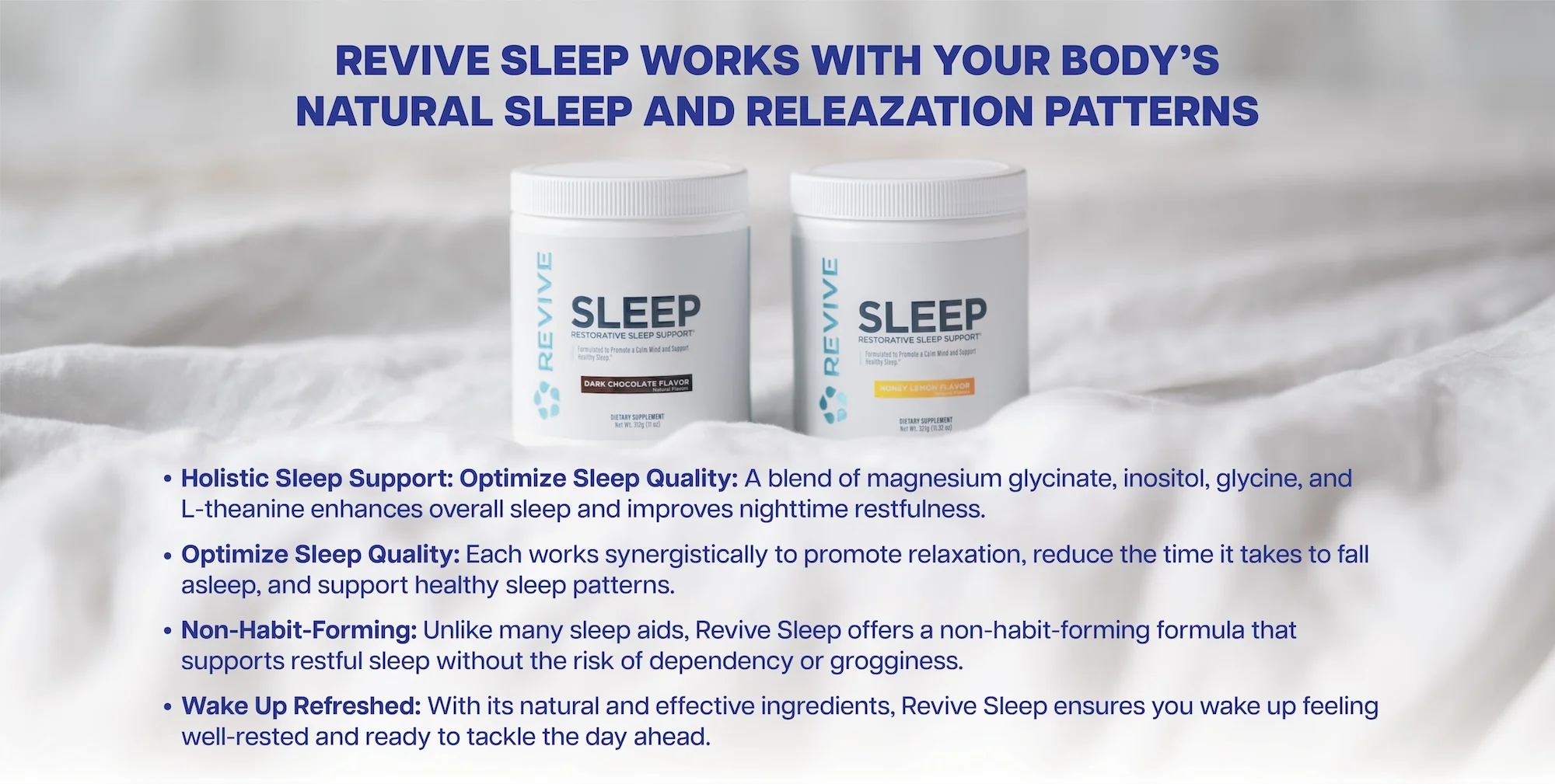
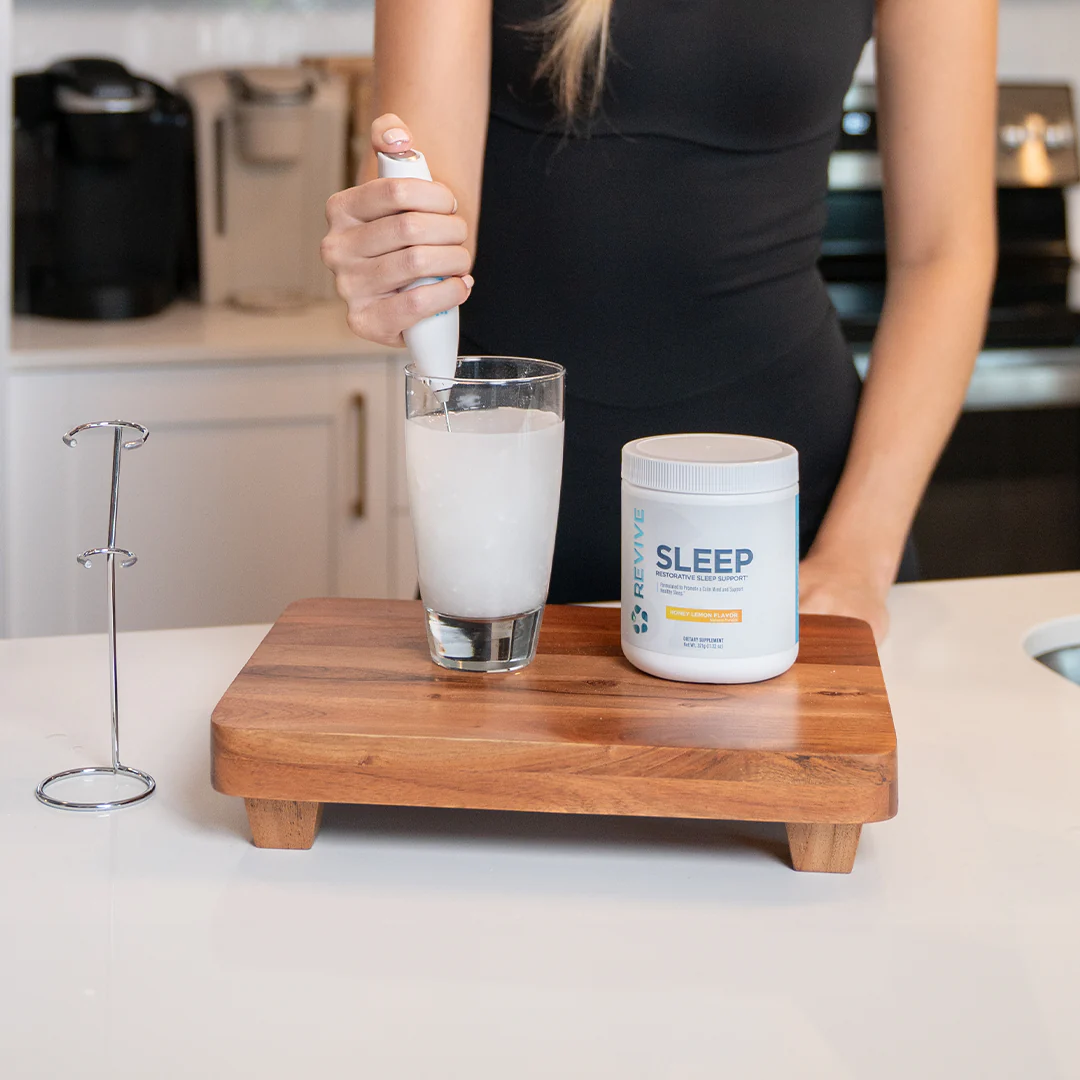
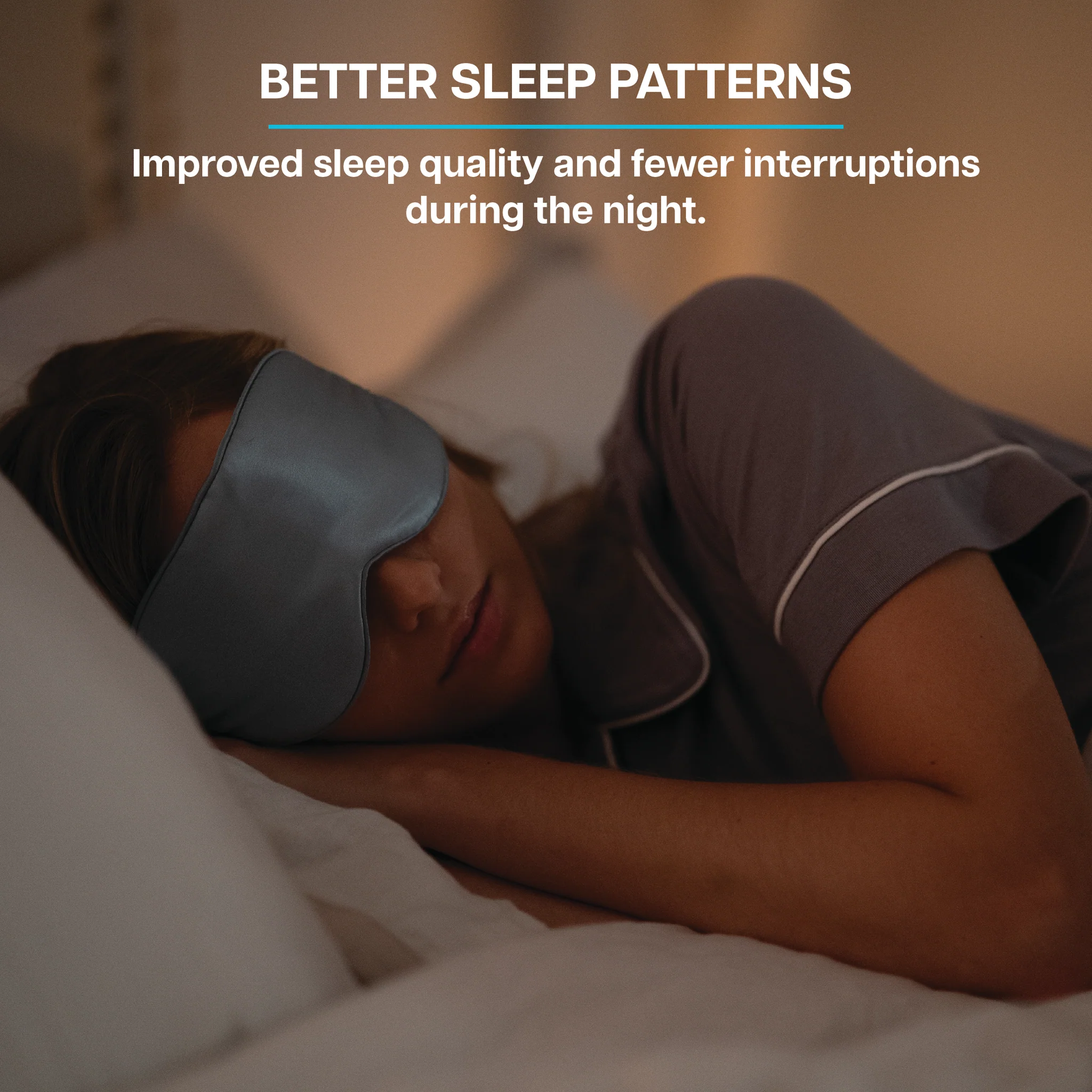
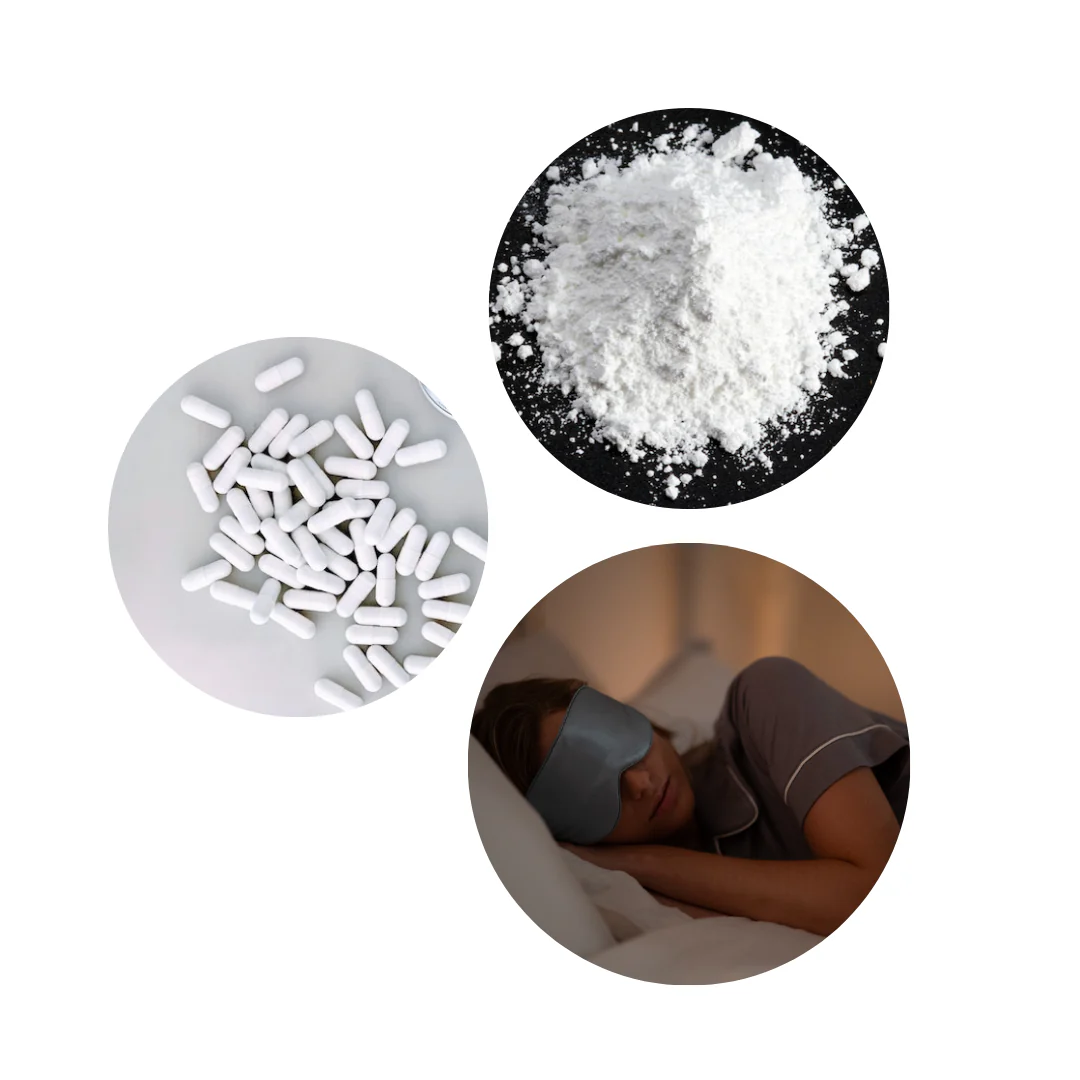

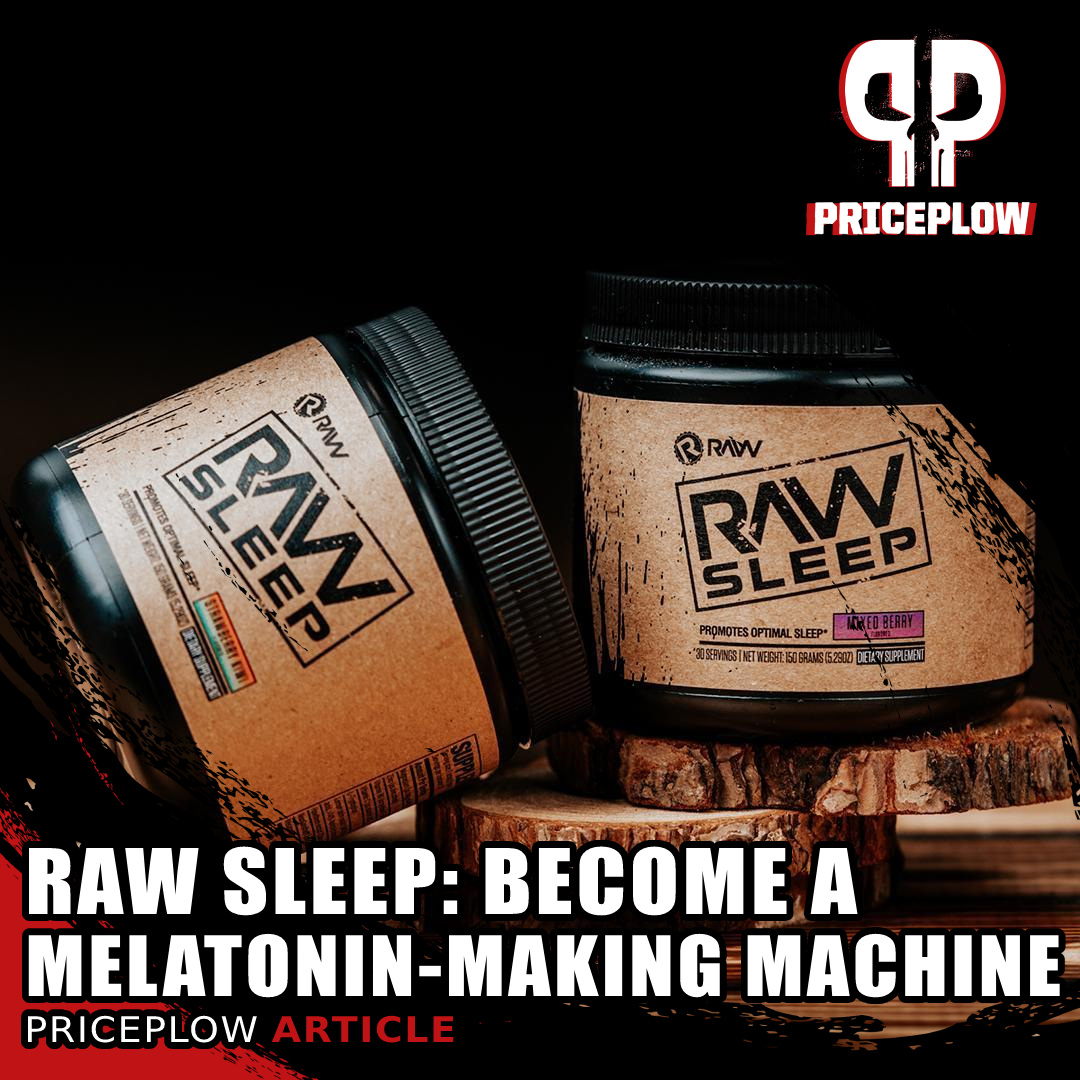
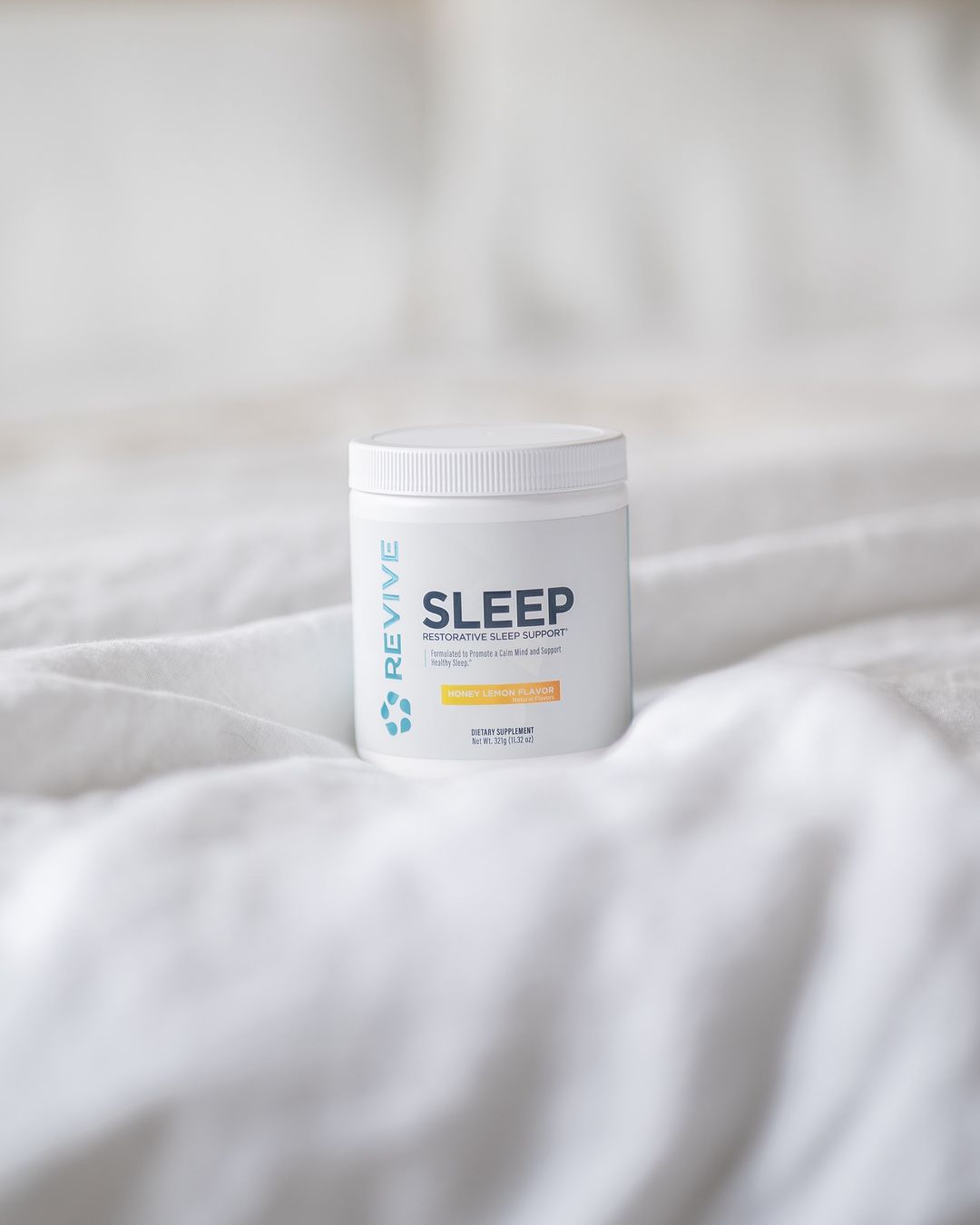
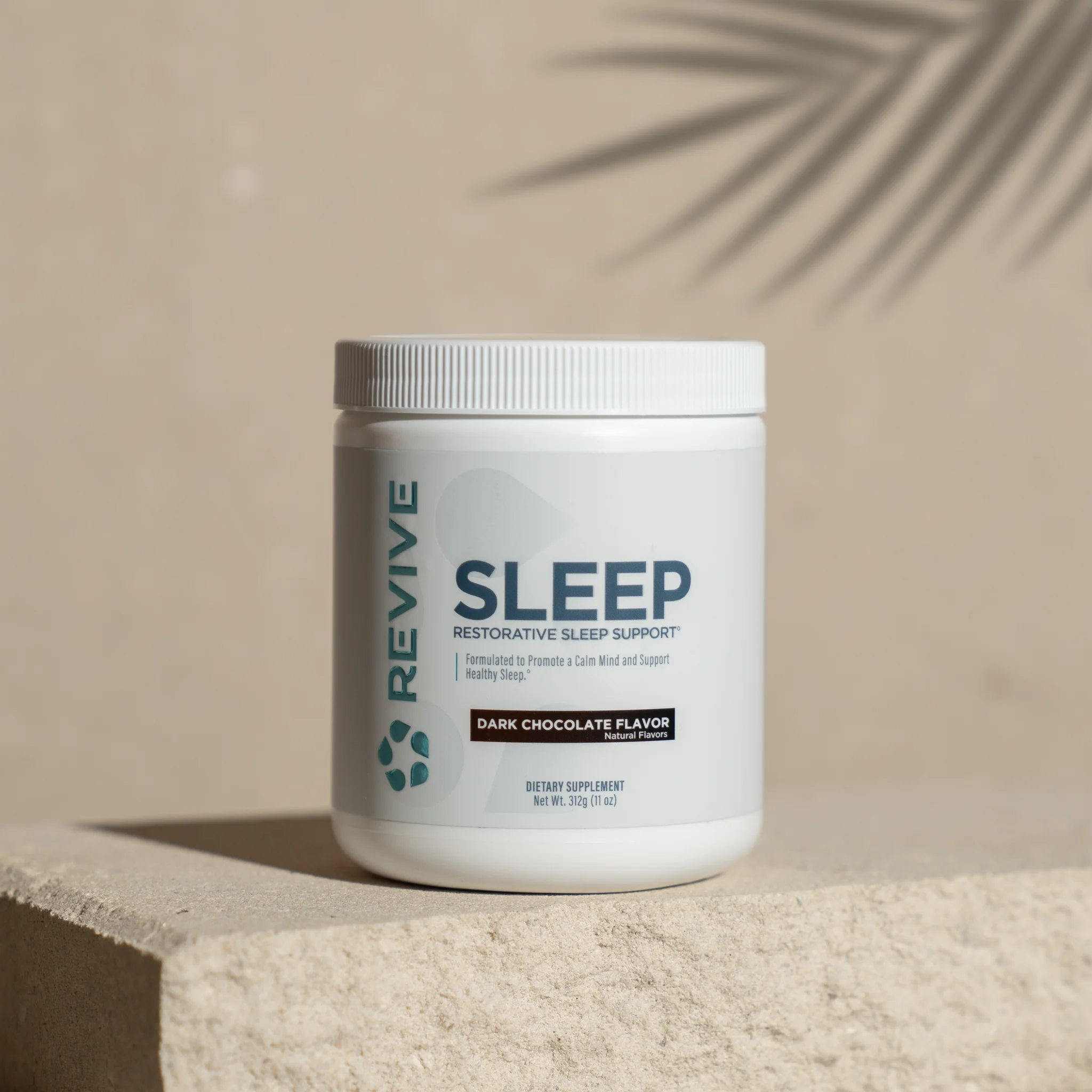
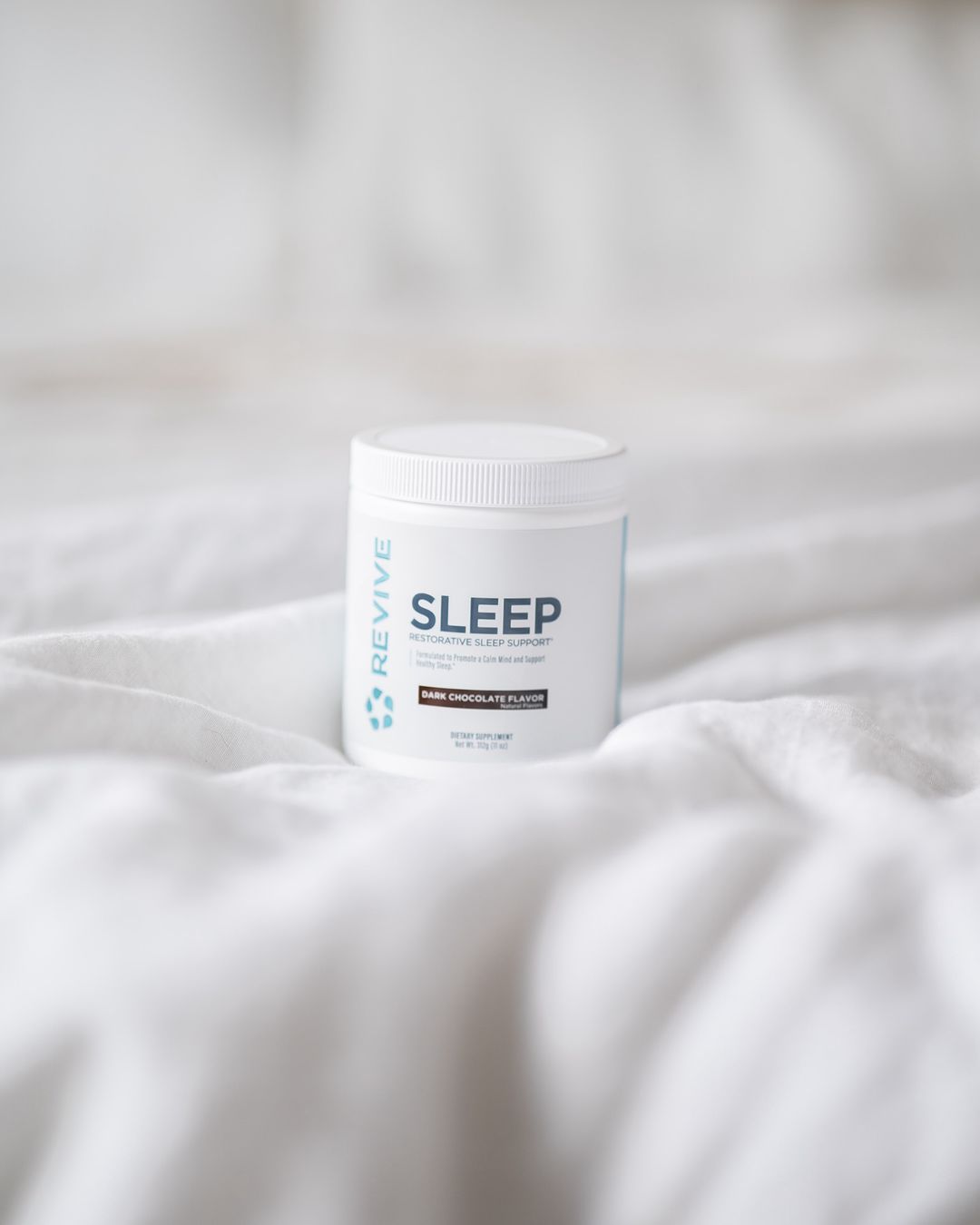
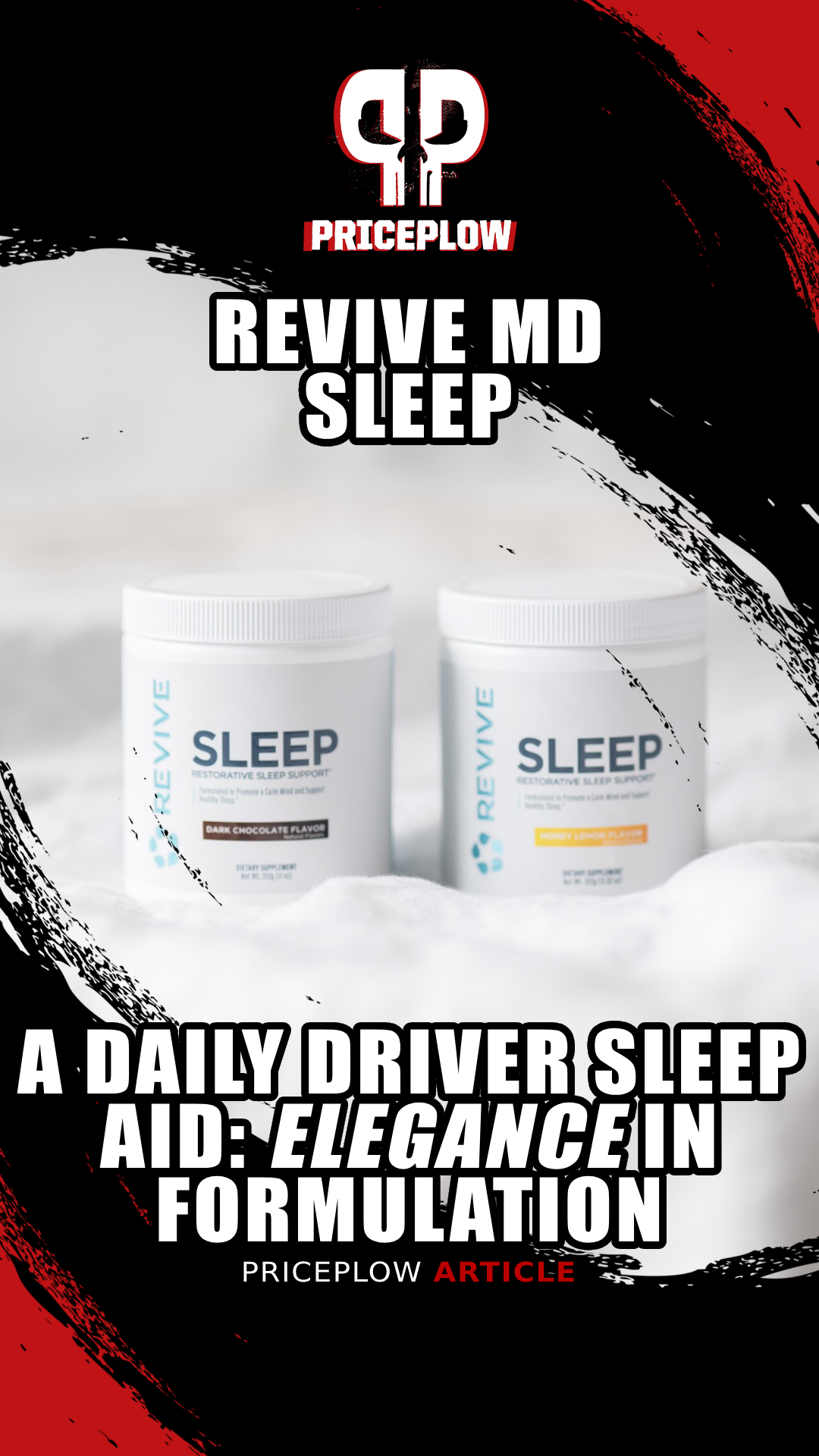


Comments and Discussion (Powered by the PricePlow Forum)